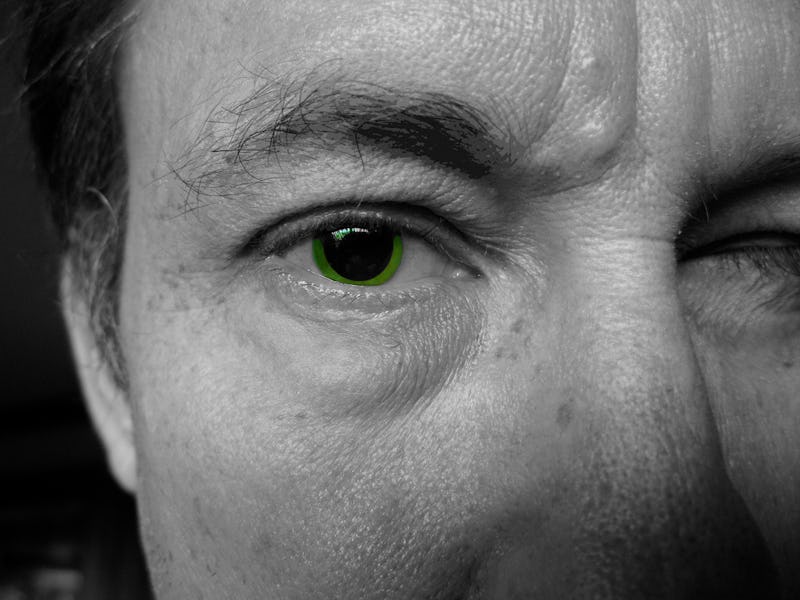Can Neural Gum Help You Write?
The players: me, L-theanine, ashwagandha, and a deadline.

Effectve Neural Gum has been on the market for a few years now. It came in on the initial wave of nootropic products and, like those other products, makes many bold claims. “Relax. Focus. Win.” is the tagline; the marketing materials from 8-12 Hz promise the product will put you “in the zone.” What zone is that? The one that lets you perform better in competitive gaming and testing situations, apparently.
I am neither gaming nor being tested, but I am writing on a deadline. I just started chewing. Let me tell you how this little self-experiment goes.
It’s 5 p.m. and I’m beginning to write an article that’s due today. One could say, with reason, that I’m both stressed and tired. If there is such a thing as the zone, I am outside of it. My eight-hour workday is looking like it’ll be a 10-hour workday.
What better time than now to give this wonder gum a true trial? But first, the background: my editor, who came from another tech website, had long been pestered by the company. The company hoped for a review, and — a quick YouTube survey reveals — bombarded potential reviewers with sample packs. Many low-profile competitive gamers gave glowing reviews; others did not. My editor simply ignored the inquiries, and the pack sat, aging, on his desk.
And that’s where I came in: Write about this gum, I was told.
As an ever-faithful guinea pig, I agreed.
I considered eating all 24 pieces at once, which, I felt, would actually give me the information I needed. The FIRST USE recommendation, however, said the following:
Chew 2 pieces for 10 minutes. Remove from mouth. Enjoy relaxed alertness.*
Four other asterisk-adorned claims decorate the box. They refer the reader to this sentence: “These statements have not been evaluated by the Food and Drug Administration.” I follow the directions because I don’t want to have to explain myself to a medical professional.
"Stay frosty"
The gum pieces themselves are flattened, marbly cylinders. At first chew, they’re pretty gross — though that may be mostly a product of this particular pack’s age. They taste like stale, fake mint, or like bad diet soda. After 10 or 15 seconds, though, the taste morphs into something almost pleasant and a bit more fruity. (The flavor: a paradoxical “Island Mint.”) As gum is wont to do, it rapidly loses its flavor, and I’m left with a piece of malleable rubber in my mouth. And I feel, for the most part, the same. And yet I’ve written all this without much struggle.
I’m not so certain that the gum is making me alert, but I do feel certain that I’ve eaten a mind-altering substance. Tell the world, the gum whispers: Tell the world that I’m the best thing you’ve ever experienced. Fortunately, my journalistic standards are far too high to give in to such pressures.
Given the chemistry of the gum and my tendency toward skepticism, it’s at least possible that the effects aren’t placebos. Effectve comes equipped with 366 mg of the “812 Proprietary Blend,” which itself contains L-theanine and KSM-66 Ashwagandha (root).
L-theanine is present, in low levels, in green tea. If you’re drinking run-of-the-mill Lipton green tea, you’re only getting about 5 mg per cup. In matcha, which is essentially concentrated green tea, it’s present at higher levels. You want a dosage between 50 and 400 mg to boost your brain, though, so green tea alone won’t cut it.
The other active ingredient is a trademarked version of “ashwagandha.” It comes from the root of rennet, and its advocates purport all sorts of extraordinary benefits. Further study is required, however, for the Effectve claims to have merit. It’s a “tonic,” which is what physicians and scientists generally say about ingredients with possible, but doubtful, efficacy.
I’ve taken L-theanine before, as a supplement: my mother purchased it for me while I was in college. She’d heard that it helps with essential tremor, the neurological disease with which I’ve been diagnosed. I’m not positive that’s true, but I’ve taken it with some noticeable effects in what would’ve otherwise struck me as tense or demanding situations.
L-theanine is said to simultaneously relax you as it perks you up; it’s said, in other words, to do the impossible, to actualize a paradox. It’s also said to actively combat the negative effects of too much caffeine, so if you’re prone to coffee-induced shakes and neuroses, L-theanine “may be right for you,” as they say. It’ll purportedly reduce stress, anxiety, and blood pressure as it improves your mood and your cognition. And more.
Matcha.
If you’re skeptical, all the power to you. At time of writing, I am living proof that L-theanine may in fact do something. It’s now 6:30 p.m. and I’m awake, but sedated. Seven-hundred-plus words have exited my fingers in what’s roughly been an hour of writing. This could either be due to resignation or to this quasi-nootropic gum I’ve consumed.
Regardless, I’m not buying this gum. It costs $24 and doesn’t come with dumplings.
Here’s what I’d recommend doing instead: go to your local GNC or apothecary and pick up some supplements. L-theanine is not hard to find. Consume it however you want. Jot down nootropic effects. Report back.
What’s the harm in trying?